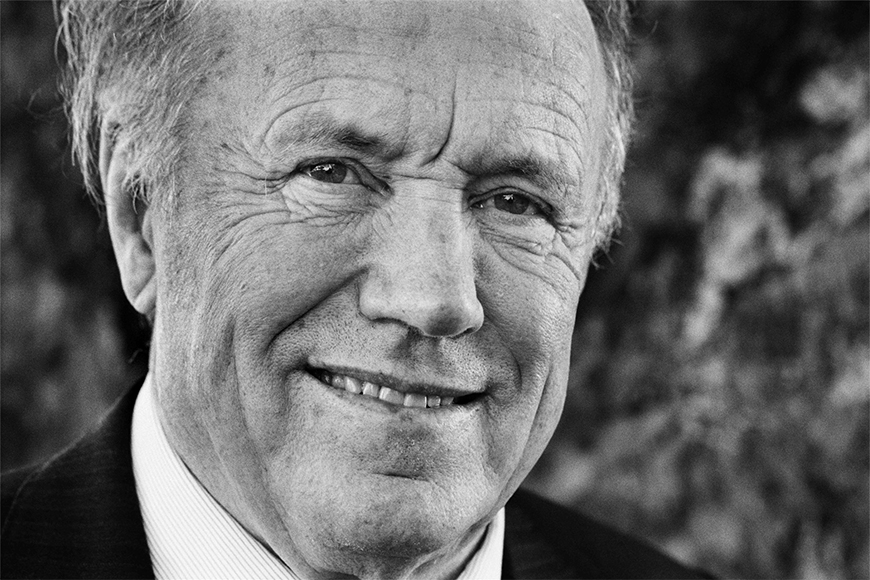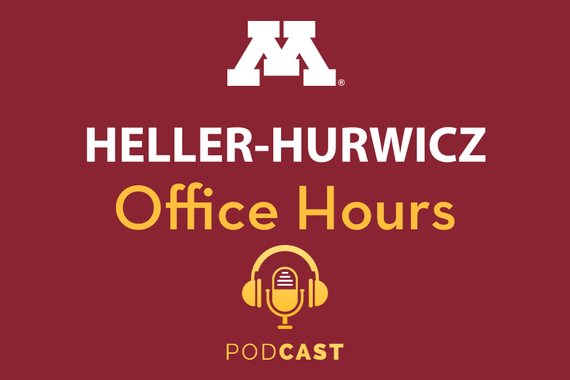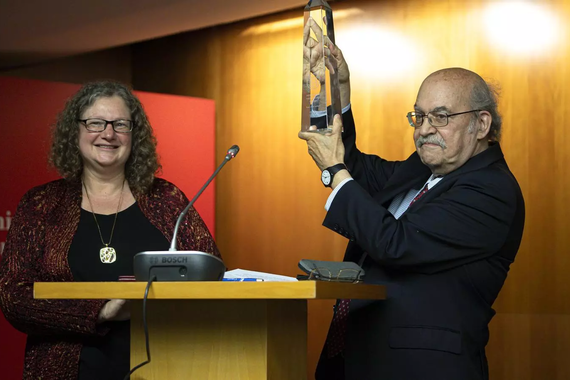Edward C Prescott (1940-2022): Economist, Teacher, Mentor and Friend
With great regret, we have learned that Edward C. Prescott passed away on Sunday, November 6, 2022. Ed was a leader in the economics profession and a stalwart of the economics department at Minnesota. Our heartfelt condolences go to his wife Jan Prescott and to their three children, Ned, Wynne, and Andy.
Many of us have lost a friend. A friend who would stop by your office with a smile to ask, "What major advances are you making in economic science today?" We all remember discussing our research questions with Ed. He would make some cryptic, incomprehensible remark, and go on to discuss whatever economic research fascinated him at the time. Several weeks later, often in the middle of the night, we would awaken, suddenly realizing that his cryptic remark pointed us to a much more productive way of answering our research questions. Ed was warm and funny in his unique way, often inscrutable, but always generous with his time and his care for us. He will be greatly missed.
Ed is a legend of the social sciences. His contributions revolutionized the practice of economic research and transformed how economic policy is made. With Bob Lucas, Tom Sargent, Chris Sims and Neil Wallace, he ushered in the rational expectations revolution in dynamic economics. These revolutionaries emphasized the value and necessity of being a humble modeler—the idea that the people in our models are no smarter and no dumber than the economist modeling their behavior. With Finn Kydland, Ed developed a series of graphic examples illustrating the problem of time inconsistency, showing how implementing desirable policies is often possible only if the policy maker can subsequently commit not to change the policies. Also with Finn Kydland, Ed argued eloquently that disturbances to the pace of technological progress are empirically large and can play an important role in generating and propagating business cycles. In his Richard Ely lecture to the American Economics Association, Ed explained why tax policy partly accounts for differences in labor market behavior between the United States and Europe.
To paraphrase Bob Lucas, watching Ed Prescott doing economics was like watching a trapeze artist on a high wire: he took our breaths away with amazing feats of economic wizardry. He pointed to new avenues that we had not considered, showed us how to build simple yet profound economic theories, found new ways of analyzing data and drawing inferences from the interaction of theory, and taught us how to think of the theory and practice of economic policy in elegant new ways.
As extraordinary as these contributions are, Ed Prescott’s greatest contribution may have been the legions of students whose minds he developed. With his students, he never wavered: He invariably insisted on clarity of thought and expression, and fussily required that we use the right language in our theories and data analyses.
While at Minnesota between 1980 and 2003, he produced 50 Ph.D. students as advisor or co-advisor, and was on the thesis committees of an additional 65 Ph.D. students. The work of Ed and his students changed the field of economics. The ranks of his former students include many leaders of academia, as well as leaders of policy making and implementation. Most important, Ed was fiercely loyal and devoted to his graduate students. They, in turn, were fiercely loyal and devoted to him, and we are thinking of his many students today.
The economics world has lost one of its guiding lights. Our hearts are lightened only by the recognition that his central insight—that economics is a search for truth—lives on in his students, his colleagues, and those who were privileged to know him.



